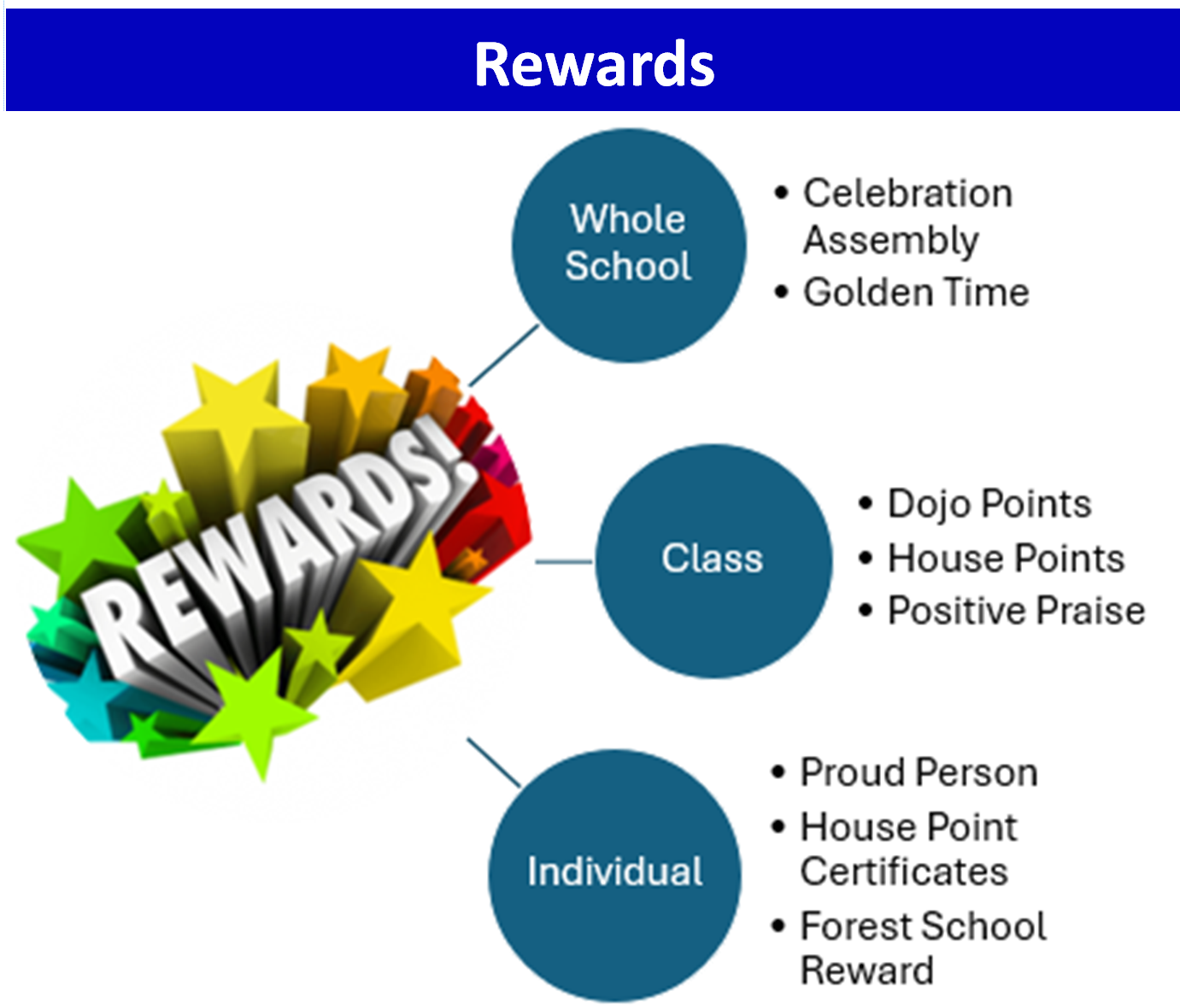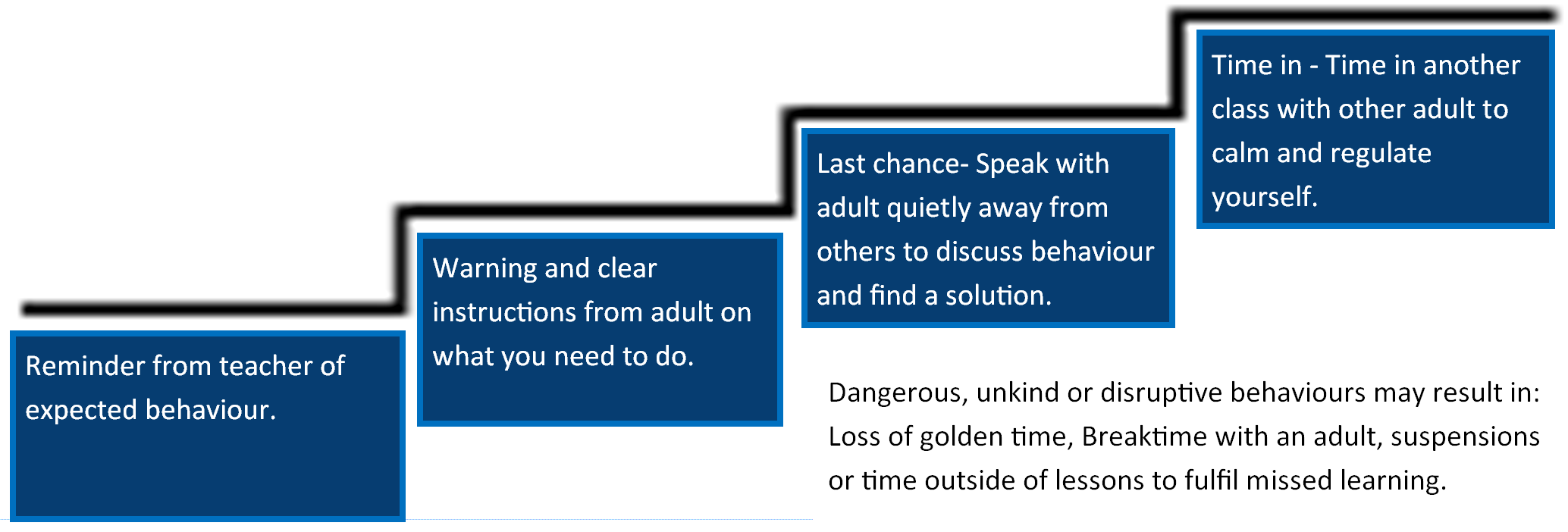Golden Rules and Pupil Expectations
Golden Rules
At Talbot Primary School, we view routines as the foundation of our classroom culture. We understand that routine behaviour needs to be taught, not just told, and our Golden Rules apply to all aspects of school life and extend beyond the school day.

By teaching children how to adhere to the Golden Rules, we believe we are guiding them towards becoming The Talbot Child, which is our ultimate goal for children leaving our school at the end of Key Stage 2.
The Golden Rules are simple, easy to remember, and of equal importance in terms of helping our children to develop into valued members of the local community.
Pupil Expectations
We believe that by instilling habits, routines, and expectations in children, they will develop a strong sense of belonging at Talbot Primary School. This sense of belonging will foster a feeling of responsibility for the school environment, encouraging them to look after and care for it properly.
Behaviour forms a key part of the personal development journey in education, and therefore, we make a promise to our children that every adult will be consistent in their interactions with children, both when recognising positive behaviours, and addressing undesirable ones.
We have divided pupil expectations into four areas to help children to know what we expect of them and to ensure consistency across the school.

We feel that if children are recognised for making the effort to do things in the right way, they are more likely to repeat that behaviour. And also, their peers are more likely to replicate it too! Teachers and adults will use a reward system to reward children who meet these expectations.

The 4-Step Routine
We aim for children to remain in class as much as possible, and our 4-step routine is crafted with positive relationships at its core.
The goal is for the same routines to be followed, regardless of who is teaching the class. This consistency helps children feel secure, as they know all adults will respond predictably.
Of course, there are exceptions to the rule, and we acknowledge that certain times and situations may require a more personalised approach.

